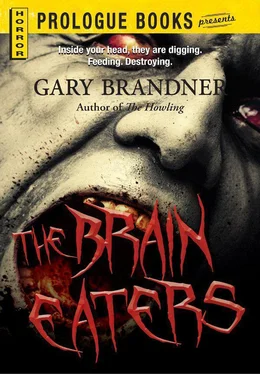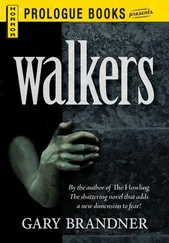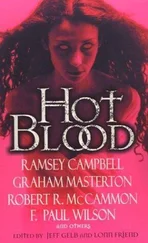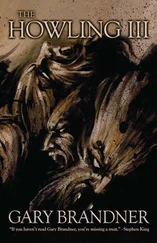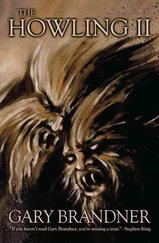“Yeah.”
“What in the world do you think made him go wild like that?”
“I have no idea,” Corey said shortly. “I wonder if I could see the body.”
“Sorry, but that’s impossible.”
“I don’t understand.”
“He was cremated yesterday.”
“Cremated? How come?”
“As a matter of fact, I was surprised myself when the widow called back. Not that I blame her. The condition of the body made lying in state questionable. We can hide a lot of damage with clothing, but people expect the face to be recognizable. Still, I was ready to go along with her wishes until — ”
“Wait a minute,” Corey broke in. “Are you saying Mrs. Stransky changed her mind about disposal of the body?”
Lujack frowned. “That’s what I was in the process of explaining. In my opinion, it was the right decision. It certainly made more sense than trying to pretty up — ”
“And you’ve already gone ahead and cremated him?”
“Yesterday afternoon. There was no reason to wait. I had the furnace going for another client. That left me today to sift the ashes and pick out a suitable urn for the funeral.”
“Did you do any kind of examination of the body before shoving it in the oven?”
“Examination?”
“Like an autopsy.”
“That’s not my job. All I had done was drain the fluids preparatory to embalming. The cosmetic work hadn’t been started when Mrs. Stransky called to say she’d changed her mind.”
“Did anybody examine the body?”
“Not that I know about. I wasn’t authorized to do any postmortem, and I’m not about to do it on my own.”
“Did you take any pictures?”
“Of the body? Certainly not. What kind of an operation do you think this is?”
“No offense, Mr. Lujack,” Corey said. “It just seems to me somebody was in an awful hurry to dispose of Hank Stransky’s remains.”
“You’ll have to take that up with the widow,” Lujack said.
“Yeah. I think I’ll do that.”
• • •
Corey drove directly to the street where Hank Stransky and his family had lived. He had the old tense feeling in the pit of his stomach, the feeling he used to get when he was closing in on a meaty story. It had been a long time.
He pulled up across from the house and for a moment sat staring at the moving van that was parked out in front. A two-man crew was transferring the Stransky furniture from the house to the van. Corey got out of the car and walked across the street.
He climbed up on the porch and looked in through the open front door. The house looked bare and somehow sad. There was no sign of Pauline Stransky or the boys. Corey stopped one of the moving men on his way in.
“Any of the family around?”
“Nope. The lady left a key for us this morning. The papers were all signed and proper.”
“Where are you taking the stuff?”
The man eyed him suspiciously. “Who wants to know?”
“Corey Macklin. I’m with the Herald .” He took out his press card with photo and showed it to the mover. “Have you got some ID?”
The man produced an authentic-looking identification card from a reputable moving company. Corey made a note of his name.
“Where you taking the stuff?” he asked again.
“It goes into storage.”
“That’s funny.”
“Not to me. I couldn’t care less where the stuff goes. I just put it in the truck at one end, take it out at the other. I got to get back to work now, okay?”
Corey watched for several minutes as the two men carried the accumulated possessions of a lifetime out of Stransky’s house and packed them efficiently into the van. He walked to the house next door and rang the bell.
A heavy woman in a quilted robe and floppy slippers opened the door and peered at him suspiciously. When Corey identified himself, she relaxed a little.
“I’d like to talk to Mrs. Stransky,” he said. “Do you know where I can reach her?”
“Beats me. She left Sunday with the boys without so much as a good-bye — after all the years we been neighbors. You’d think she could at least’ve said something.”
“You say she left Sunday. Was she driving?”
“No, Pauline never drove nowhere if she could help it. Couple of men, banker types, came for her in a car. Big Caddy, it was. Her and the boys, suitcases and all, got in, and off they went. Not even a good-bye.”
“Banker types, you say.”
“You know — suits, ties, all like that.”
“You haven’t any idea where they went?”
“Nope. I went over there Saturday night after things were quieted down. Took a lemon meringue pie for her and the boys. Pauline never said anything about going away. She was taking it pretty well, all things considered. Making plans for the funeral.”
“Did she say anything about having Mr. Stransky cremated?”
“Not a chance. Hank didn’t believe in it, and Pauline wouldn’t go against Hank, living or dead, if you know what I mean.”
“I see. Well, thanks for your time.” Corey turned away and started down the porch steps.
“Don’t you need my name for the newspaper?” the woman called after him.
“Not this time. Maybe later.”
“It’s Lubin. Mrs. Dorothy Lubin.”
Corey took out a sheet of copy paper and scribbled on it. He gave Mrs. Lubin a wave and jogged back across the street to his car.
• • •
Back at the Herald building, he picked up the telephone and got the number listed for DuBois Williamson in Brooklyn, New York. He dialed the number and tapped a pencil impatiently against the receiver as he listened to a series of electronic buzzes and clicks. Finally, something like a human voice came through the earpiece.
“I’m sorry. The number you have dialed is out of service. Please check your directory to make sure you dialed correctly. Thank you.” Click.
“Shit.” Grinding his teeth, Corey checked his number and dialed again.
“I’m sorry. The number you have dialed is — ”
He banged down the receiver, scooped up the manila folder containing his notes, and marched into Porter Unlander’s office.
The paunchy city editor belched into his fist when he saw Corey coming and edged his chair back as though he were expecting a physical attack. Corey opened the folder and spread the contents on the desk before Uhlander.
“Remember this?”
“Yesterday’s news, Corey,” he said.
“Read it, Porter. Three strange, violent deaths, three different cities, all on the same day, all with strong similarities.”
“So do it as a feature and see if you can talk Marianne into running it in the Tuesday magazine.”
“It’s not a feature, damn it. It’s news. For the first time in years the Herald stands to break a really big story. Believe me, if the Sun-Times and the Tribune get on to this, we’re going to look damn foolish. Are you going to be the one to spike it?”
Porter Uhlander began a sigh that turned into a belch. “What do you need?”
“A fast trip to New York.”
“No.”
“Come on, Porter. Are you going to let a few dollars stand in the way of fame and fortune?”
“Whose fame and fortune are we talking about?”
“Yours. Mine. The Herald ’s. Who cares? Listen, if nothing comes of this, you can take the damn air fare out of my salary.”
“You’re serious about this, aren’t you.”
Corey held up his right hand in oath-taking position.
“Tourist class on the red-eye?”
“Hell, yes. I’ll go air freight. Just get me there.”
Uhlander shook a handful of Tums from a plastic bottle on his desk and spilled them into his mouth. He chewed solemnly while he dug through his desk for the blank pad of trip authorizations:
Читать дальше
